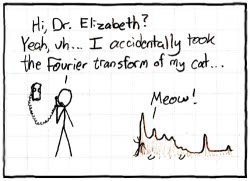 [Diesen Artikel gibt es noch nicht auf Deutsch. Wenn du dazu beitragen willst, das zu ändert, beteilige dich bitte an der Übersetzungs-Werkstatt.]
[Diesen Artikel gibt es noch nicht auf Deutsch. Wenn du dazu beitragen willst, das zu ändert, beteilige dich bitte an der Übersetzungs-Werkstatt.]
Previous part: Free Cooperation.
Peer production is based on commons and possession, not on property. As long as you use something (by yourself), there is no obvious difference between possession and property. The difference only becomes visible when you stop using it: your property still remains your property, allowing you to sell it to someone else (in return for money or some other equivalent). But possession is bound to usage—if you no longer need something, you cease possessing it and somebody else can start possessing it.
One issue where this becomes relevant is the question of long-term vs. short-term usage. When projects expect people to make contributions in order to get the things they want, there are cases where the length of usage should be taken into account. Otherwise, people who want to use something for a limited period of time would be put at a serious disadvantage, since they would have to contribute just as much as if they wanted to use it “forever.” When the expected “lifespan” of a good exceeds the expected time of usage by any given person, it might thus be appropriate to tie the required contributions to the length of usage, sharing the overall effort between all who use it over time. For example, a project or local association organizing housing for its members might prefer to require contributions for living in a house or apartment for a certain amount of time (instead of for living there forever), thus spreading the effort necessary for building and maintaining houses among all the people who live there over time.
The difference between property and possession is also relevant for the problem of resource allocation. In an economy where everything is based on commons and possession instead of property, it would not make sense to treat natural resources as property—to rely on buying and selling to allocate them. In fact, it would not even be possible: if nothing apart from resources is sold, how should those who lack them be able to buy them?
(mehr …)
 [Es gibt eine
[Es gibt eine  [Diesen Artikel gibt es noch nicht auf Deutsch. Wenn du dazu beitragen willst, das zu ändert, beteilige dich bitte an der
[Diesen Artikel gibt es noch nicht auf Deutsch. Wenn du dazu beitragen willst, das zu ändert, beteilige dich bitte an der